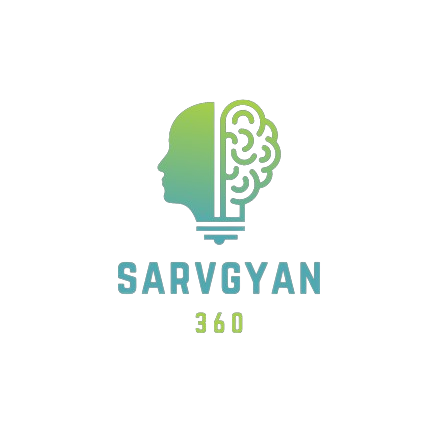BABG-171: UNDERSTANDING B.R. AMBEDKAR
₹30.00
BABG-171: Understanding B.R. Ambedkar
Introduction
BABG-171: Understanding B.R. Ambedkar is a course offered by Indira Gandhi National Open University (IGNOU) that delves deeply into the life, philosophy, and contributions of Dr. Bhimrao Ramji Ambedkar, one of the most influential figures in Indian history. This course aims to provide students with a comprehensive understanding of Ambedkar’s role in shaping modern India, his fight for social justice, and his enduring legacy.
Course Overview
The course is designed to introduce students to the multifaceted persona of Dr. B.R. Ambedkar. It covers various aspects of his life, including his early years, education, political career, and his pivotal role in drafting the Indian Constitution. The curriculum is structured to offer insights into Ambedkar’s thoughts on caste, social justice, economics, and his vision for an inclusive society.
Learning Objectives
- Comprehensive Understanding of Ambedkar’s Life: Students will gain detailed knowledge about Ambedkar’s early life, his struggles, and his achievements. This includes his journey from a marginalized background to becoming a key architect of the Indian Constitution.
- Analysis of Ambedkar’s Ideologies: The course will delve into Ambedkar’s ideologies and his thoughts on caste discrimination, social justice, and economic equality. Students will explore his writings and speeches to understand his vision for India.
- Appreciation of Ambedkar’s Contributions: Students will learn about Ambedkar’s significant contributions to Indian society, particularly his role in the social reform movement and his efforts to eradicate untouchability and promote equality.
- Critical Thinking and Reflection: The course encourages students to critically analyze Ambedkar’s ideas and their relevance in contemporary society. It fosters reflective thinking on issues of social justice and human rights.
Course Content
Module 1: Early Life and Education
- Early Years: This module covers Ambedkar’s childhood, his experiences with caste discrimination, and the influence of his family and mentors.
- Education: Ambedkar’s pursuit of education, his time at prestigious institutions like Columbia University and the London School of Economics, and how his academic journey shaped his worldview.
Module 2: Political Career and Social Reform
- Entry into Politics: Ambedkar’s entry into politics, his role in the independence movement, and his advocacy for the rights of the marginalized.
- Social Reforms: Detailed study of Ambedkar’s efforts to reform Indian society, including his campaigns against untouchability, his work with the Depressed Classes, and his push for educational and economic reforms.
Module 3: Ambedkar’s Ideologies
- Caste System: Ambedkar’s critique of the caste system, his analysis of its impact on Indian society, and his proposed solutions for eradicating caste-based discrimination.
- Economic Thoughts: Ambedkar’s views on economic development, his emphasis on industrialization, and his thoughts on land reforms and labor rights.
- Religion and Conversion: Ambedkar’s exploration of religion as a means of social transformation, his conversion to Buddhism, and its significance.
Module 4: Role in Drafting the Constitution
- Constitutional Assembly Debates: Ambedkar’s contributions to the Constituent Assembly, his role as the Chairman of the Drafting Committee, and his input on fundamental rights, social justice, and democracy.
- Preamble and Articles: Examination of key articles and provisions in the Indian Constitution that reflect Ambedkar’s vision for a just and equitable society.
Module 5: Legacy and Contemporary Relevance
- Ambedkar’s Legacy: The lasting impact of Ambedkar’s work on Indian society, including the ongoing relevance of his ideas in contemporary social and political discourse.
- Current Movements: Analysis of modern social movements that draw inspiration from Ambedkar’s philosophy and their efforts to address ongoing issues of inequality and discrimination.
Pedagogical Approach
The course employs a variety of teaching methods to ensure an engaging and enriching learning experience. These include:
- Lectures and Seminars: Expert lectures and interactive seminars to provide in-depth knowledge and facilitate discussions.
- Reading Assignments: Comprehensive reading assignments from Ambedkar’s own writings and scholarly works on his life and ideas.
- Case Studies: Real-world case studies to illustrate the practical application of Ambedkar’s theories and principles.
- Group Discussions: Encouraging collaborative learning through group discussions and debates on key topics.
Assessment and Evaluation
Assessment in BABG-171 is designed to evaluate the students’ understanding and critical analysis of the course material. The evaluation methods include:
- Written Assignments: Regular assignments to assess students’ grasp of the subject matter and their ability to articulate their thoughts.
- Examinations: Periodic exams to test students’ knowledge and understanding of key concepts and historical facts.
- Presentations: Oral presentations to develop communication skills and encourage students to engage with the material creatively.
- Participation: Active participation in discussions and seminars to foster a collaborative learning environment.
Conclusion
BABG-171: Understanding B.R. Ambedkar is a vital course for students interested in Indian history, social justice, and political science. By exploring the life and legacy of Dr. B.R. Ambedkar, students will not only gain a deep appreciation for his contributions to Indian society but also develop a nuanced understanding of the ongoing struggles for equality and justice. This course is an essential academic endeavor for anyone committed to understanding and addressing social inequalities in India and beyond.



Reviews
There are no reviews yet.